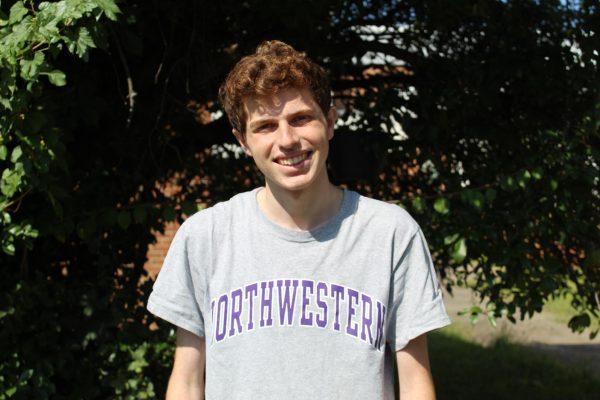Just before the 2020-2021 school year, WJ’s signature program (APEX-Reach) made some very significant changes to the way it was structured. The program got rid of the cap on the number of students, made the admissions process easier and got rid of senior year seminar class. These changes have been met with scrutiny from many students, although the program is not perfect, recent changes are not the problem.
“The changes don’t really completely change the courses or the program, it’s still APEX, so it’s still a good experience for [students],” APEX-Reach freshman Julian Lewis said.
Changes to the program’s admissions process have allowed for the program to become more diverse. For example, before these changes, the percentage of students in the program who were African-American was about 2%. That number has risen to 6% since the changes and although that does not yet match the percentage of African-American students in the school (10%), the gap has become much smaller.
Having a standardized test and portfolio submission erased from the application process has gotten rid of some unnecessary anxiety. Many students can often become very anxious during tests or times where they are applying for something but may not get in. During a time when there is so much going on in the world that could make someone anxious, eliminating some anxiety will have a positive effect on students’ short-term mental health while placing more emphasis on student grades during school rather than how well they can manage test anxiety. Due to these factors, giving students better resources just because they did well on one test is likely not a good representation of how they will do in future classes does not promote inclusion and equity, nor does it strengthen students who are or could be in the program.
“I know a lot of people think it takes away the prestige of the program, but at the same time, I know a lot of my friends who could have been in the APEX program if it wasn’t for an application or if they hadn’t moved from another county, so I feel like it really adds to the value that people’s work is recognized,” senior Camille Lorillou said.
Pathways have also recently come under fire from students because many believe that it makes the program more restrictive, but this is not the case. Many colleges look for students to zone in on one of their interests, the pathways that the APEX-Reach program has set up gives students a guide on classes that show that they are interested in a specific subject. For those who would not like to choose a specific subject area, there is the general education pathway which allows for students to take any nine AP courses and also gives them the option to take dual enrollment courses at Montgomery College for the program.
The APEX program was created over 20 years ago to challenge students to have a rigorous course schedule with many AP courses. At the time, since APs were not taken as often, the program offered a lot of opportunities for APEX students that students who were not in the APEX program did not have.
“At the time it was crazy to take eight or nine AP classes and taking AP classes sophomore year was unheard of,” class of 2000 APEX graduate Amy Feygin said.
While taking nine AP classes in 2000 was very unusual, taking that many APs today is a lot more common especially amongst applicants to top colleges. Since APEX was created, the number of AP courses students are taking has risen exponentially. The program should adapt to these changing times so that the rigor of the program in today’s day and age is equivalent to what the rigor of the program was when it was started.
“I would like to see WJ address some of the negative outcomes, such as the elimination of the senior seminar, the lack of cross-curricular connections and field trips caused by the larger number of students and teachers involved and the lack of cohorting that allowed APEX-Reach students to build strong connections with their peers.” APEX-Reach English teacher Janelle Ryan said.
In the future, APEX-Reach should offer accelerated versions of courses to students that allow them to take courses more quickly so that they can take more APs as well as more classes that they are interested in outside of normal requirements and Advanced Placement. By doing this, the rigor of the program will be increased and more students will have the opportunity to take courses that are of greater speed and difficulty as well as more classes they would like to take in their upperclassmen years.
APEX-Reach recently changed its application process to give more students the opportunity to be part of a program that encourages students to reach their full academic potential. The only thing they need to do now is provide more classes and resources for students to do so.















